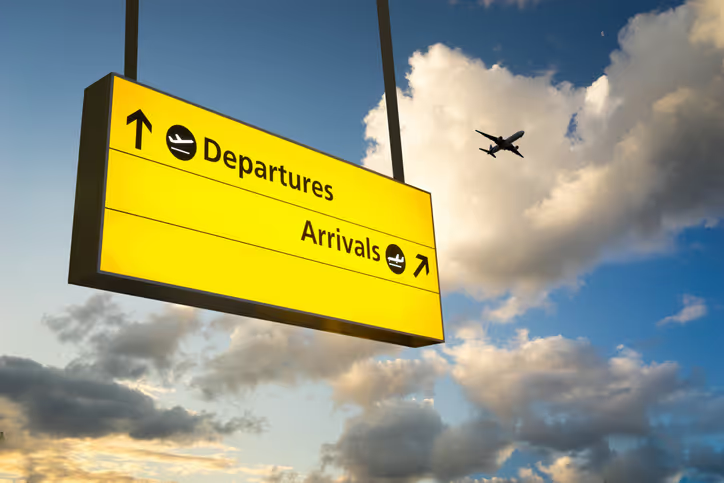The UK’s new ETA system: What it means for travellers
January 8, 2025

Starting today, millions of visitors to the UK, including those from the USA, Canada, and Australia, will need to apply for an Electronic Travel Authorisation (ETA). By April 2025, the requirement will extend to Europeans and all non-visa travellers without UK immigration status, marking a significant change to the UK’s border process.
Since we share our name with the scheme, we thought we’d give a quick overview of how it works.
With the introduction of this digital permission to travel, the UK government aims to bolster border security, improve efficiency, and ensure the UK remains an appealing destination. But what does this mean for travellers and the country’s tourism industry?
ETAs are already familiar to Gulf Cooperation Council nationals, with over 243,000 issued in the first half of 2024. Their rollout to visitors from countries like the USA, Canada, and Australia - who contributed a staggering £8.8 billion to the UK economy in 2023 - signals a broader move towards digitising border controls.
From 2 April 2025, all non-visa visitors will need an ETA or eVisa before travelling. Costing just £10, ETAs permit multiple entries over two years (or until the holder’s passport expires) and are linked digitally to the traveller’s passport.
The system aims to streamline entry while reinforcing security. However, the success of this new system depends on clear communication and ease of use, especially as the requirement affects millions.
How to apply for an ETA
Travellers can apply for an ETA via the UK ETA app or the GOV.UK website. The app is designed to provide quick decisions - often within hours - and guides applicants through uploading photos of their passport and face. For those without access to a smartphone, the GOV.UK website offers an alternative.
Applicants will need their passport, an email address, and a payment method (credit card, debit card, Apple Pay, or Google Pay). Importantly, ETAs are non-refundable, so travellers should confirm eligibility before applying.
What can you do with an ETA?
An ETA allows visitors to stay in the UK for up to six months for tourism, family visits, business, or short-term study. It also permits certain work-related activities, such as attending paid engagements or working under the Creative Worker visa concession for up to three months.
However, an ETA is not a visa. It does not permit longer stays, paid work, access to public funds, or successive visits intended to establish residency. Travellers with different plans, such as getting married or taking up long-term employment, will need to apply for the appropriate visa.
While the ETA system promises greater efficiency and security, its introduction may create challenges for some travellers. Misunderstandings about eligibility and requirements could result in unnecessary disruptions. Dual citizens, for example, may not need an ETA if travelling on a British or Irish passport, but this nuance needs better public awareness.
The £10 fee is relatively low, but critics worry about the potential for delays or technical issues, particularly if the system faces high demand. Additionally, some have raised concerns about whether the new requirement might deter short-term visitors or complicate travel plans for those unaware of the change.
What does the ETA mean for the UK?
The ETA system has significant implications for the UK’s tourism industry. Visitors from the USA, Canada, and Australia alone provide vital economic support to businesses across the country. Ensuring the system is user-friendly and widely understood will be key to maintaining the UK’s reputation as a dynamic, welcoming destination.
For the government, the system represents a step towards modernising border controls and preventing document fraud by replacing physical immigration papers with digital alternatives. Yet, it must balance security needs with the need to avoid alienating potential visitors in a competitive global tourism market.
The introduction of ETAs marks a shift in how the UK manages its borders. While the system aims to enhance security and efficiency, its success will hinge on transparency, ease of use, and effective communication with travellers.
As the rollout continues, the government must address potential hiccups and ensure that the ETA system becomes a tool for seamless, secure travel—not a barrier. For millions of visitors, the UK’s dynamic and diverse attractions remain a draw, but keeping it that way will require careful management of this new digital frontier.
The ethical choice
The ETA was established in 1990 as an ethical provider of green, reliable travel services. Over 30 years on, we continue to offer cycle insurance , breakdown cover and mobility scooter insurance while putting concern for the environment at the heart of all we do.
The Good Shopping Guide judges us to be the UK's most ethical provider.
Information correct at time of publication.







